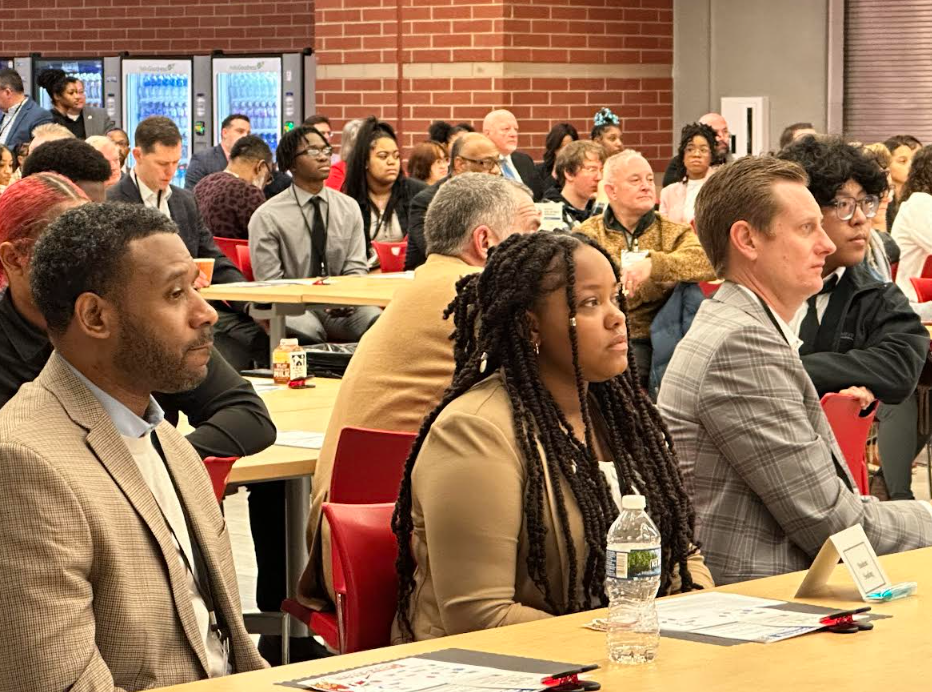Building CTE Pathways Between Schools and Local Businesses
INNOVATIVE LEADER AWARD WINNER - Award-winning superintendent Tom Burton shares how Princeton City Schools has built CTE partnerships with more than 500 local businesses.

Tools and ideas to transform education. Sign up below.
You are now subscribed
Your newsletter sign-up was successful
Shortly after Tom Burton was hired as superintendent of Princeton City Schools in Ohio, the district hosted a business partnership breakfast. Only 38 people showed up, a number that left Burton embarrassed given the many opportunities for partnerships with businesses in the community.
“Literally mid-script I stopped and apologized and said, ‘Listen we’ve been doing this wrong for a long time,'” he recalls. “'We’ve been asking the businesses to support us and help, and give us things, instead of that, what do you need?’ So I changed the question and that changed everything.”
Today the district has more than 500 business partners and qualified graduates are guaranteed interviews with any of them. For leading these and other efforts to connect his district to the larger community, Burton was honored with the Innovative Superintendent Award at a recent Tech & Learning Regional Leadership Summit in Maryland.
Burton shares tips for fostering deeper connections and productive relationships between students and local businesses.

Create A Pathway For Success

Princeton City Schools runs a Work Ethic Certificate program. Students who complete that program are automatically granted interviews for any position they qualify for at any of the 500-plus local businesses with which the district partners. The program prioritizes the skills that are needed in today’s world, including collaboration, flexible thinking, and creativity.
In addition, students have to be actively involved in the business breakfasts and maintain professionalism in their scholastic careers. “Obviously, they're not getting suspended or not tardy all the time,” Burton says. “Punctuality matters in the world of work, right?”
To date, the program has helped place more than 500 high school graduates directly into the workforce.
Tools and ideas to transform education. Sign up below.
Focus On Skills Students Need
Students who are involved in the Work Ethic Certificate program learn basic skills that any employer is seeking in a worker. “People get fired because of their inability to work with others. They get fired because they're not on time. They get fired because they're not creative and innovative and self-starters,” Burton says. “So the new worker needs to be all those things and not be afraid to take calculated risks.”
Business leaders also value quick learners and flexible thinkers, Burton adds. And that’s all in addition to the specific skills needed for each individual field.
Keep Assessing
Despite the district’s successes so far, its work readiness programs continue to evolve.
The district also has a Work Ethic Advisory committee that consists of students, business leaders, and district staff members. The group regularly meets to evaluate and discuss what the program is doing well and how it can improve. This process includes assessments to make sure the program is meeting its goal of helping kids prepare to enter the workforce with durable and desirable skills.
Be Open to Different Paths Post High School
After graduation students can go to college, join the military, or enter the workforce, Burton says. At Princeton City Schools, educators work hard to support students no matter which pathway they choose.
When Burton presents to other school districts, he says he sometimes sees reluctance from school leaders to talk about students going directly into the workforce. He believes thinking should change and educators need to do whatever they can for students regardless of their intended post-high school career.
“You have to have an unrelenting dedication to make sure that we're going to get kids on those pathways,” he says. “Know the pathways, know the kids, not only just by name, but their story and their strengths and interests, and make sure you can get them on the right pathway for them to be able to be successful.”
Erik Ofgang is a Tech & Learning contributor. A journalist, author and educator, his work has appeared in The New York Times, the Washington Post, the Smithsonian, The Atlantic, and Associated Press. He currently teaches at Western Connecticut State University’s MFA program. While a staff writer at Connecticut Magazine he won a Society of Professional Journalism Award for his education reporting. He is interested in how humans learn and how technology can make that more effective.

